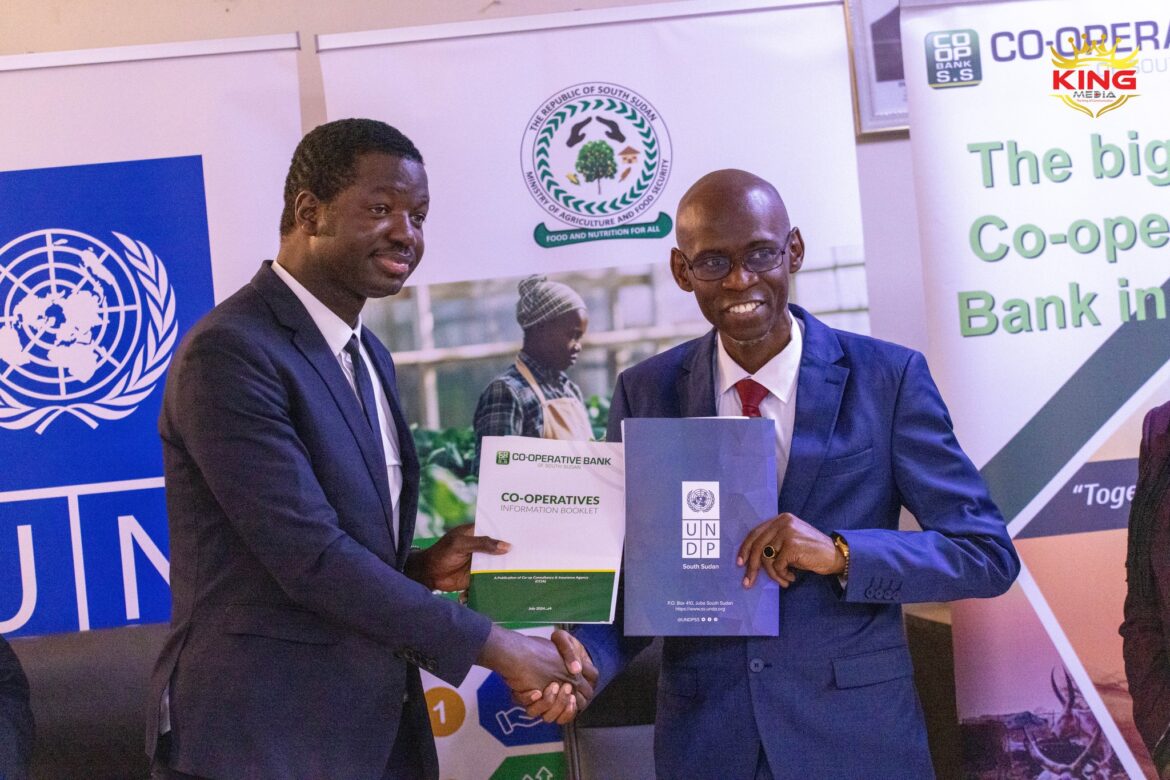By Matik Kueth
The United Nations Development Programme (UNDP) and the Cooperative Bank of South Sudan on Friday signed a multi-year work plan in collaboration with the Ministry of Agriculture and Food Security to implement Component II of the Rural Enterprise and Agriculture Development (READ) project.
The project, funded by IFAD under a $20 million grant, with additional support from the government and partners, aims to boost rural finance, strengthen food production and empower women and youth across six counties in the country.
Speaking at the signing ceremony in Juba, Evans Kenyi, t Ministry of Agriculture and Food Security’s Technical Advisor, said agriculture remains central to community livelihoods and national resilience.
He stressed the ministry’s readiness to ensure the project reaches all designated counties as planned.
“We are not just investing in crops and livestock. We are investing in people, in communities, in local enterprises, and in the future of our nation,” Kenyi said.
He added, “This is a very important project where there is partnership involved. Let us all work hard to see to it that this baby, which is born today, we try to nurse it so that it grows to become a big child that will be useful to everybody.”
Ligane Sene, UNDP’s Economic Advisor, stated that the initiative comes at a crucial time as South Sudan seeks to diversify its economy and improve food security.
“This is really a good opportunity for us to see how we can maximize the potential of agriculture in the country,” he stressed.
Elijah Wamalwa, Cooperative Bank of South Sudan’s Managing Director, noted that the agreement marks a major step in expanding rural banking and cooperative-driven development.
“The overall objective of this component is to build sustainable long-term access to rural finance services aimed at improving household purchasing power,” he stated.
Meanwhile, Caroline Mongera, IFAD’s Country Director for South Sudan, underlined the power of collaboration in driving development.
“Today’s partnership is a transformational step toward building a more inclusive and resilient rural economy for South Sudan,” she emphasized.
The seven-year REED project will support over 162,000 beneficiaries, especially women, youth, and rural cooperatives, marking a renewed push toward a more resilient, productive, and food-secure South Sudan.



